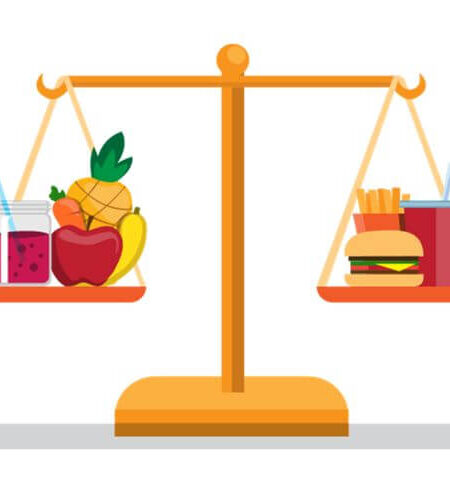What is a Balanced Diet?
A balanced diet contains all the proximate principles like protein, fat and carbohydrate, minerals, and vitamins in due proportions and at the same time meets the total energy requirements for keeping the health, vitality, and well-being of a person.
A balanced diet is one that contains a variety of foods in such amount and proportion that the needs for energy, proteins, vitamins, minerals, fats, carbohydrates, and other nutrients are sufficiently met for maintaining health, vitality, and general well-being.
A balanced diet provides the following:
- A sufficient number of calories,
- Adequate amounts of protein, fat ad carbohydrates,
- A sufficient amount of minerals and vitamins for maintaining health, vitality, and general well-being.
Importance of a Balanced Diet:
A balanced diet is so much important due to the below reasons:
- It maintains health, vitality, and general well-being.
- It safeguards a population from nutritional deficiencies.
- It helps the growth and development of any person.
- It protects the body against any infection.
- It prevents mortality and morbidity.
- It prevents infant mortality rate and low birth weight.
- It regulates the whole body process.
- It protects against malnutrition and other nutritional deficiency disease.
What are the Criteria for a Balanced Diet?
The following criteria should maintain a balanced diet:
- It should be easily available.
- It should be sufficient to satisfy taste and appetite.
- A diet should be palatable.
- A balanced diet must be easily absorbable, digestible, and assimilable.
- Fat and protein should be obtained both from vegetable and animal sources. At least one-third of protein and fat should be of animal origin.
- It should contain sufficient vegetables and fruits.
- Minerals and vitamins and minerals should be present in adequate quantity.
- To promote peristalsis certain amount of cellulose or roughage should be present.
Goals of a Balanced Diet:
There are a few key goals of a balanced diet which are presented below:
- The requirement of protein should be met. It should include 15 to 20 percent of the daily energy needs.
- Fat should be restricted to 20 to 30 percent of daily energy needs.
- Include natural fiber in food to make up for the remaining energy needed.
- For non-vegetarians, pulses can be reduced by 50 percent, add one egg or 30gms fish or meat to the diet.
- When pulses are not included in the diet then two eggs or 50gms fish or meat can be included.
Percentage of Food Items in a Balanced Diet:
Food items percentage in a balanced diet are presented in the following table:
SL No. | Food Items | Percentage (%) |
01 | Carbohydrate | 50-70 |
02 | Fat | 20-30 |
03 | Protein | 15-20 |
